[GSE 2022] Forum on Leveraging Intelligent Technology for Education Innovation
date:2022-09-30 09:04author:adminsource:Smart Learning Instituteviews:
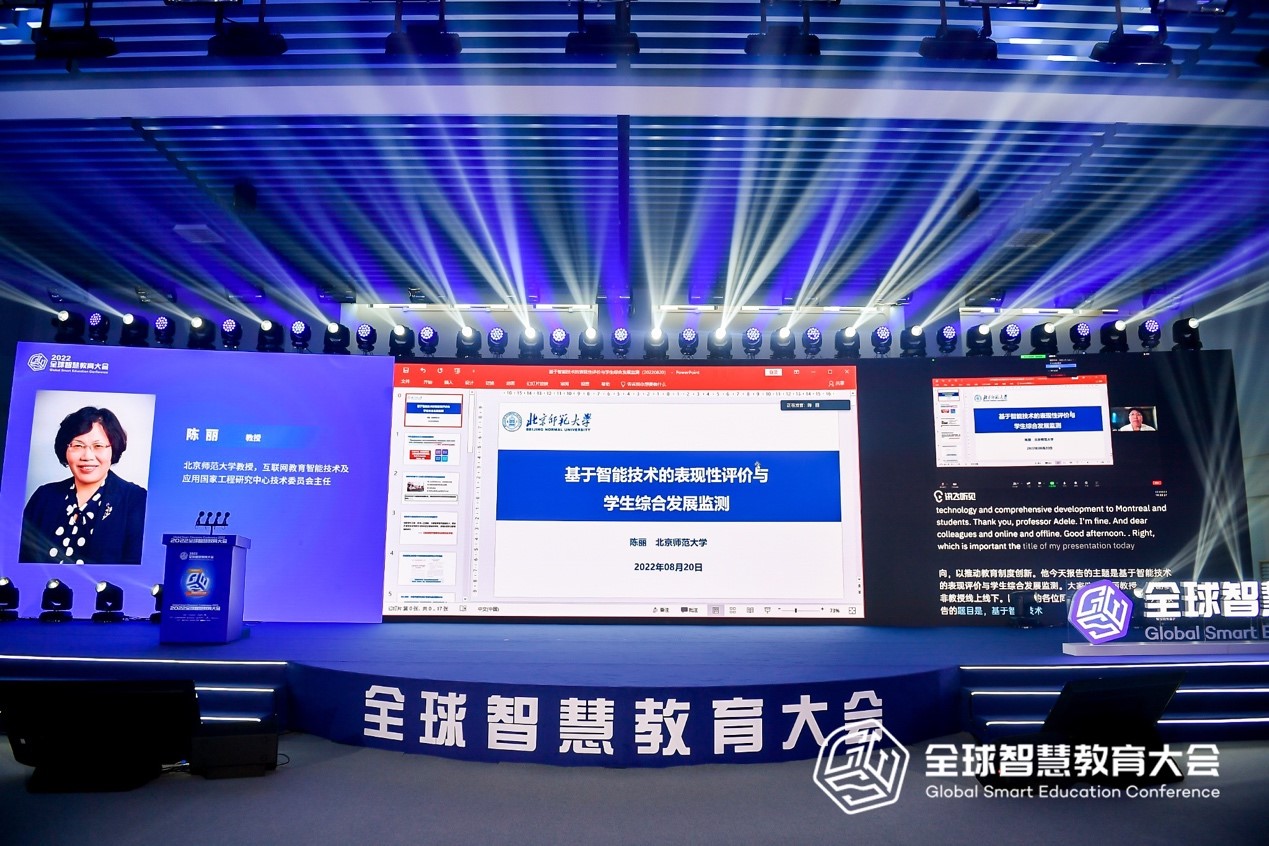
Professor CHEN Li from Beijing Normal University
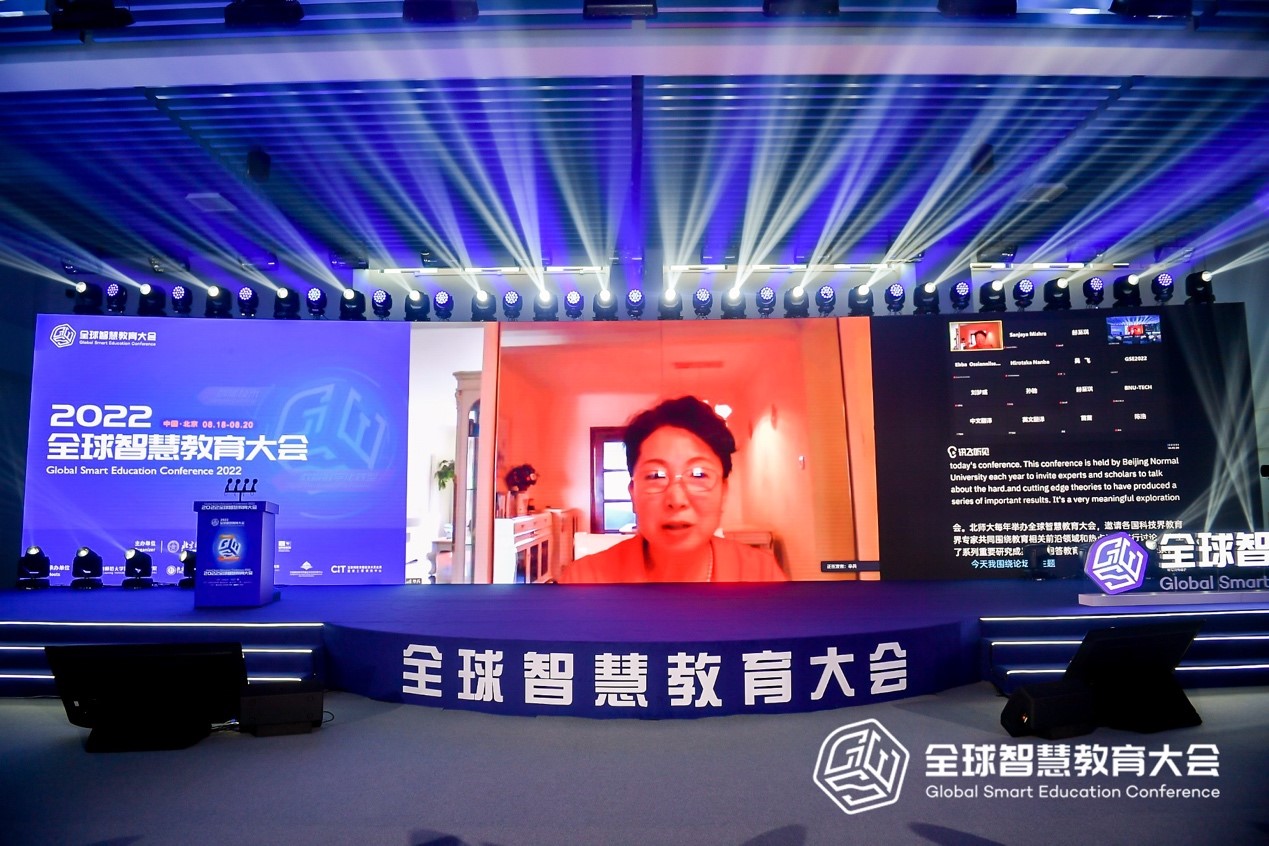
Dr. XIN Bing, who is the researcher and director of the Children & Youth Science Center (CYSC) of the China Association for Science and Technology
Dr. XIN Bing, who is the researcher and director of the Children & Youth Science Center (CYSC) of the China Association for Science and Technology, proposed 3 initiatives on “The Thinking and Practice of Educating People Through the Combination of Technology and Education”. The first is to seize the opportunity of the history of the information revolution and use information technology to empower the development of educational innovation. The second is to build a platform for international exchanges and jointly cultivate global youth science and technology talents. The third is to vigorously strengthen online and offline cooperation to jointly cope with the challenges of science and technology education.
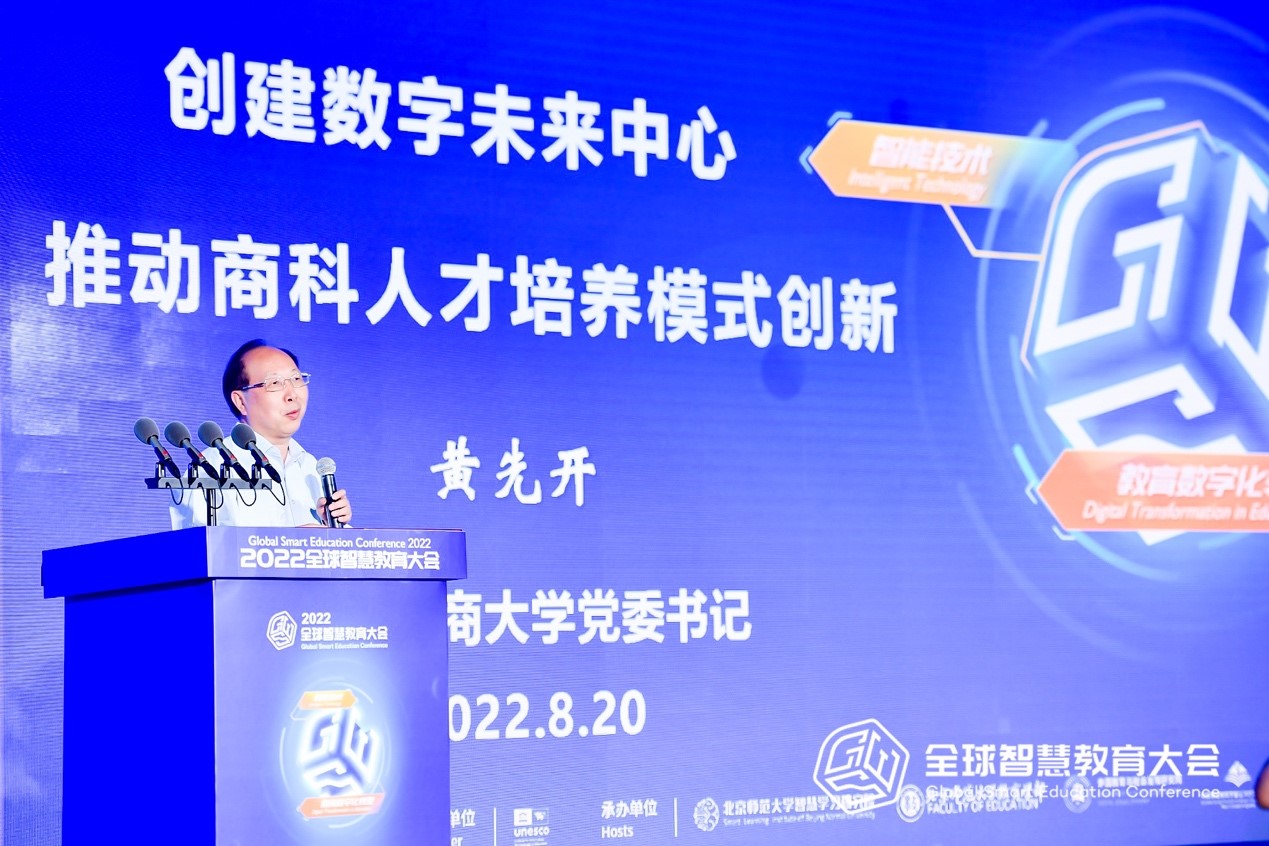
Professor HUANG Xiankai, secretary of the Party Committee of Beijing Technology and Business University
Professor HUANG Xiankai, secretary of the Party Committee of Beijing Technology and Business University, believed digital education had become an important part of the national development strategy, and digital transformation is the key to the transformation of higher education. Beijing Technology and Business University have built a Digital Future Center which interconnects all kinds of digital resources. Realizing the transformation of digital talent training in business could be achieved through building an integrated platform for intelligent teaching to realize the digitization of management processes and constructing a teaching space for digital interaction between teachers and students.
Technology-empowered innovative teaching and learning
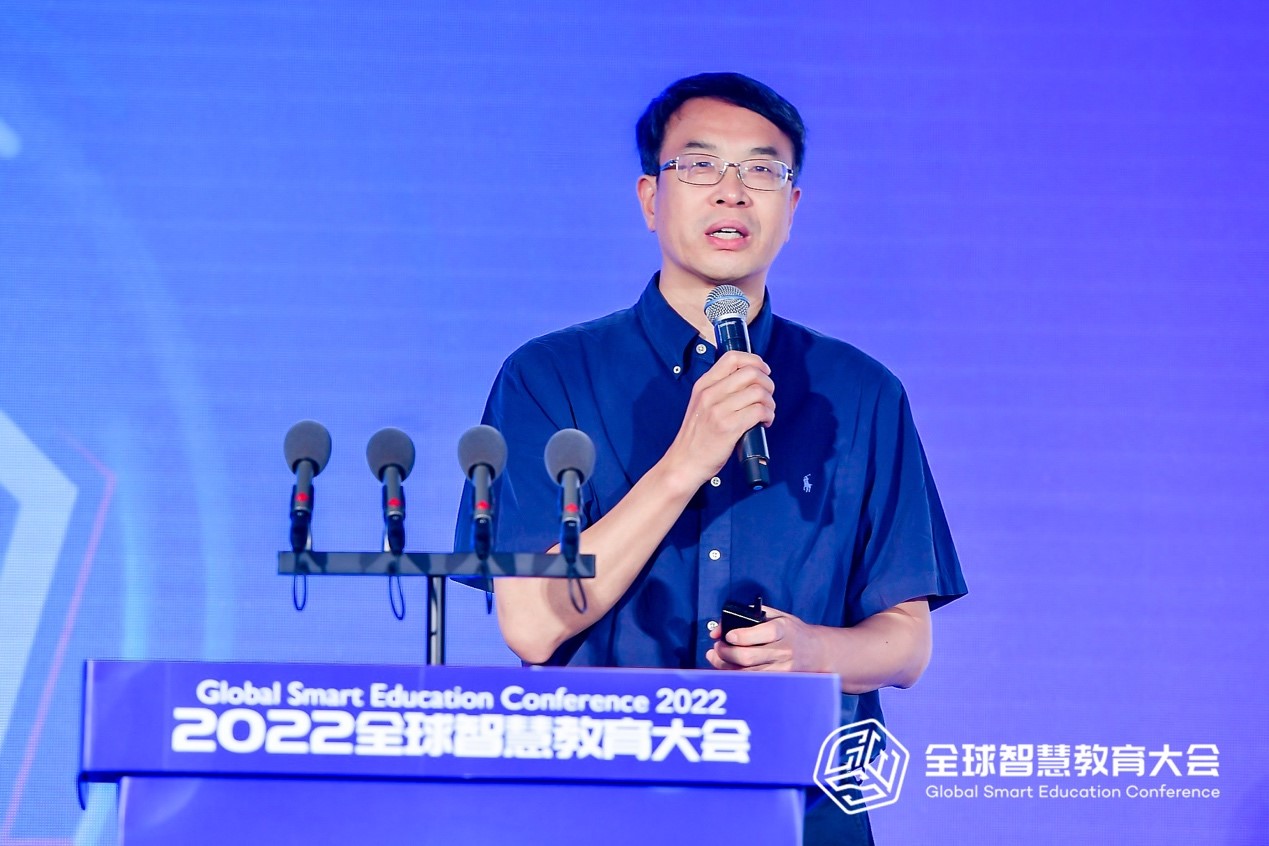
Professor ZHU Wenwu, professor and deputy head of the Department of Computer Science and Technology (DCST) of Tsinghua University
Professor ZHU Wenwu, professor and deputy head of the Department of Computer Science and Technology (DCST) of Tsinghua University, focused on autonomous-driven machine learning. He noted that the overall idea of autonomous-driven machine learning is similar to that of pedagogy, which needs to be adjusted from both internal and external states. That is to say, adjusting learning goals and choosing learning strategies based on the learning environment and students’ own state. Pedagogical ideas play a guiding role in the development of machine learning, and vice versa, the development of artificial intelligence technology will further promote the technological transformation of education.

Mr WU Fei, head of the Expert Group of Artificial Intelligence and Science and Technology Innovation of the Ministry of Education, P.R.C
Mr WU Fei, head of the Expert Group of Artificial Intelligence and Science and Technology Innovation of the Ministry of Education, P.R.C, noted that we had entered a data-intensive era, where we can collect thousands of data that characterizes different human behaviors and patterns. The connotation of artificial intelligence is data-supported models and algorithms, computing power and systems, scenarios and applications. On the basis of this connotation, technology can be formed to intersect in different fields or different scenarios.; therefore, artificial intelligence technology must be combined with scene applications to promote the advent of the intelligent era.
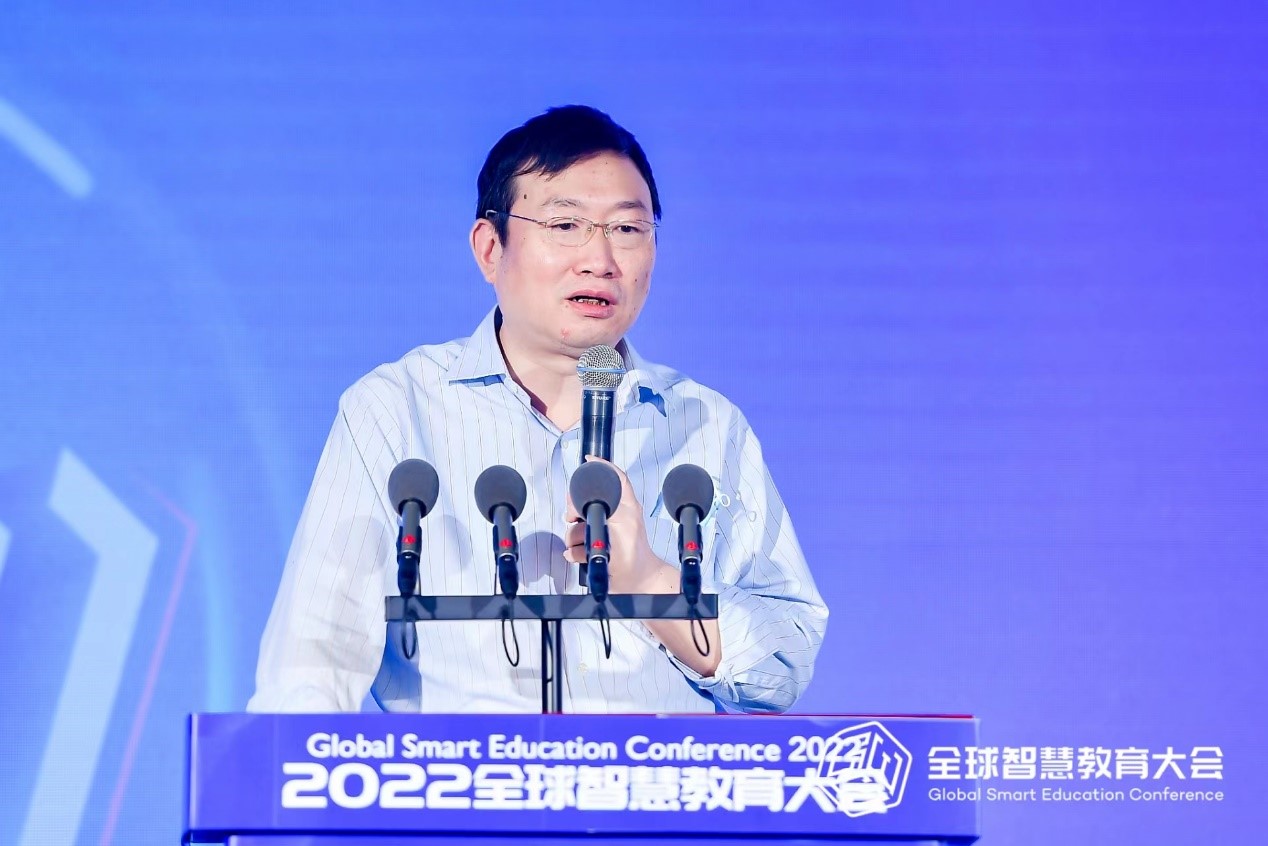
Professor WU Wenjun from Beihang University
Professor WU Wenjun from Beihang University delivered a speech on “Research and Thinking of Group Intelligence in Smart Education”. He stressed that we could learn from the model of Open Source Community to build a group learning space so that the group intelligence would be better formed. In his view, we could first design a group organizing structure and interaction model for teaching; then, we construct a hybrid, effective learning incentive mechanism and provide a series of intelligent auxiliary tools such as cognitive modeling, homework review, human-computer mutual evaluation, performance prediction, etc., with an aim to build a more complete group pattern and intelligent learning space.
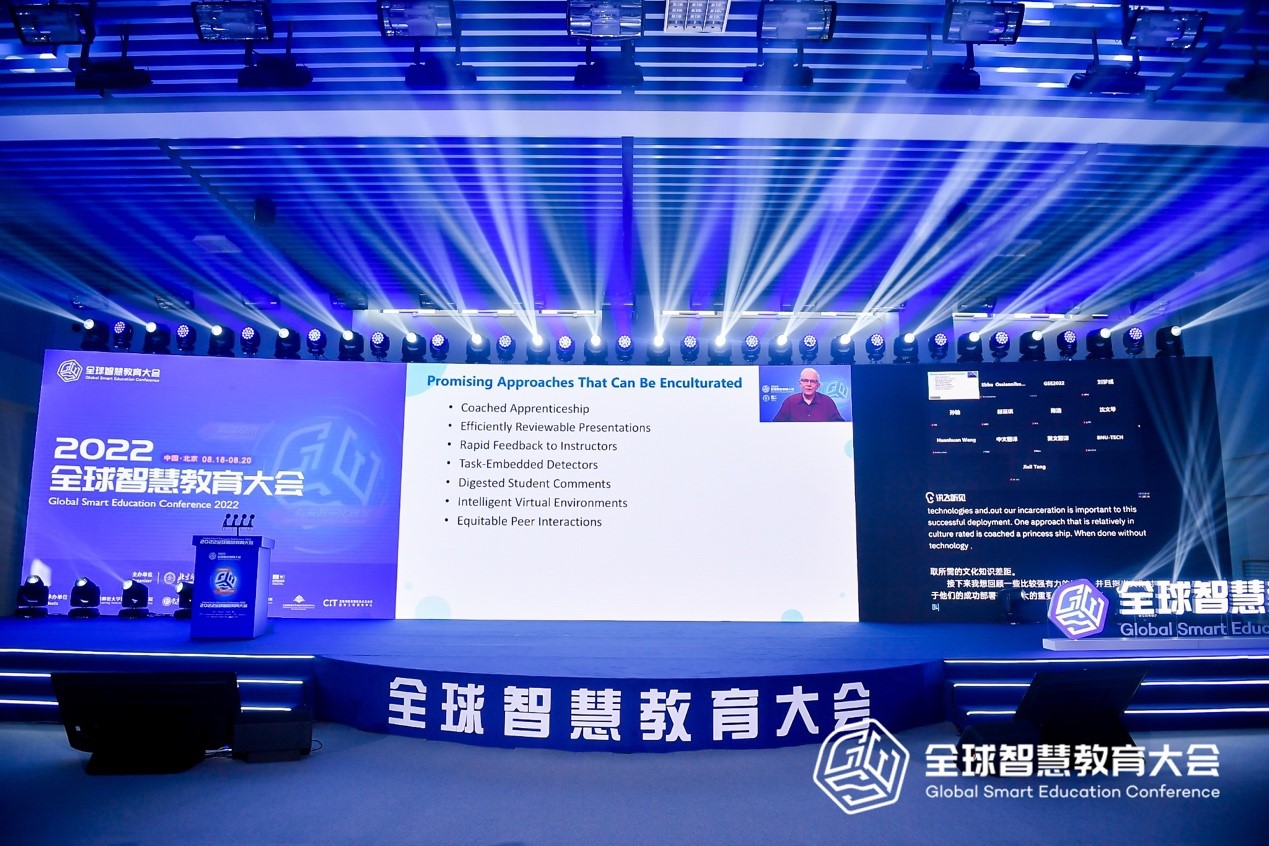
Professor Emeritus Alan Lesgold from the University of Pittsburgh
Professor Emeritus Alan Lesgold from the University of Pittsburgh gave a presentation on “Enculturating Smart Learning Technology”. He believed that technology could facilitate interaction between people, which is when learning happens. The key lesson learned from past practices of learning improvement is that we need to narrow the cultural knowledge gap required to acquire and apply new technologies as much as possible. The knowledge and culture of technology application play an important role in the successful deployment of new technologies.
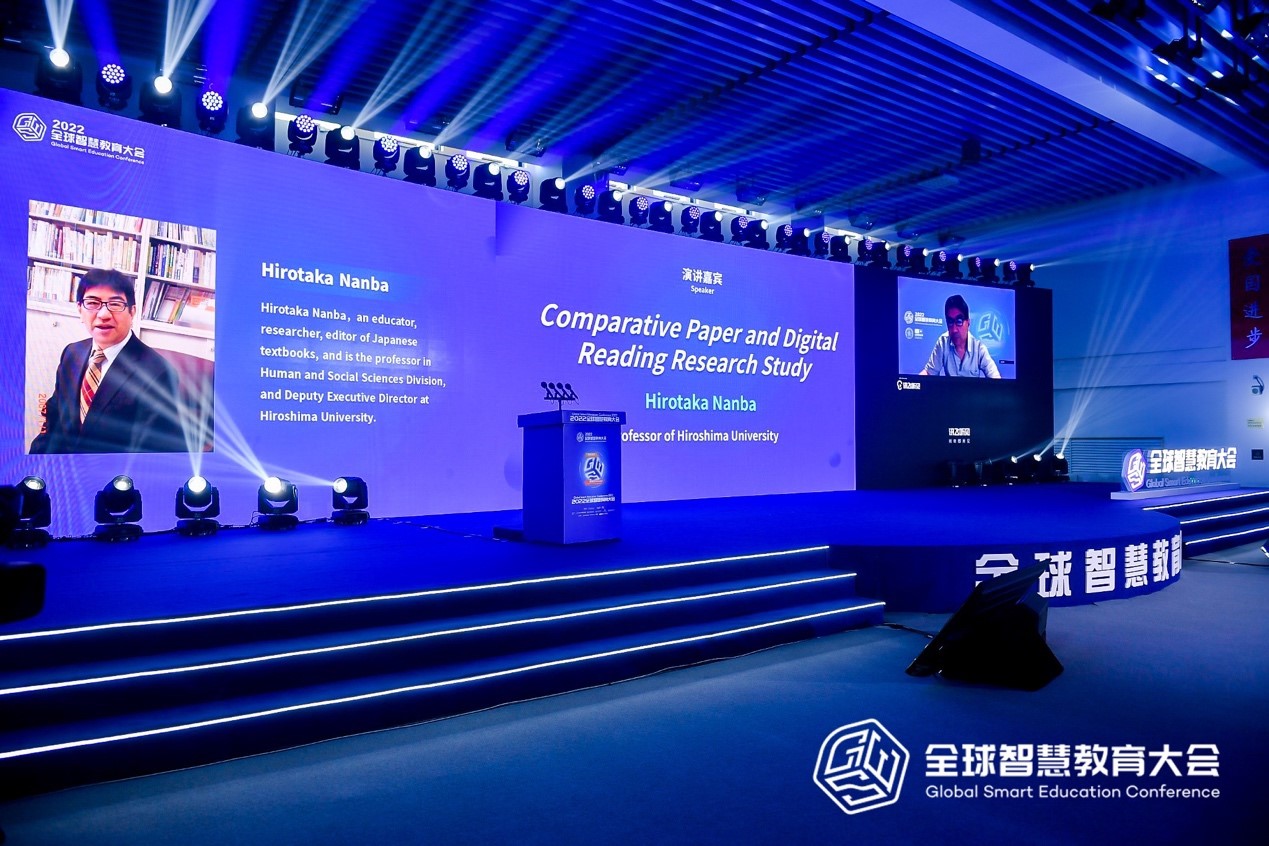
Professor Hirotaka Nanba from Hiroshima University
Professor Hirotaka Nanba from Hiroshima University shared his research results from a comparative study of paper reading and digital reading in medium-scale and small-scale schools. He suggested that (1) digital reading should not be introduced in the lower grades but in the middle grades and firmly implemented in the upper grades; (2) digital reading is suitable for objective reading comprehension while paper reading is suitable for immersive reading.
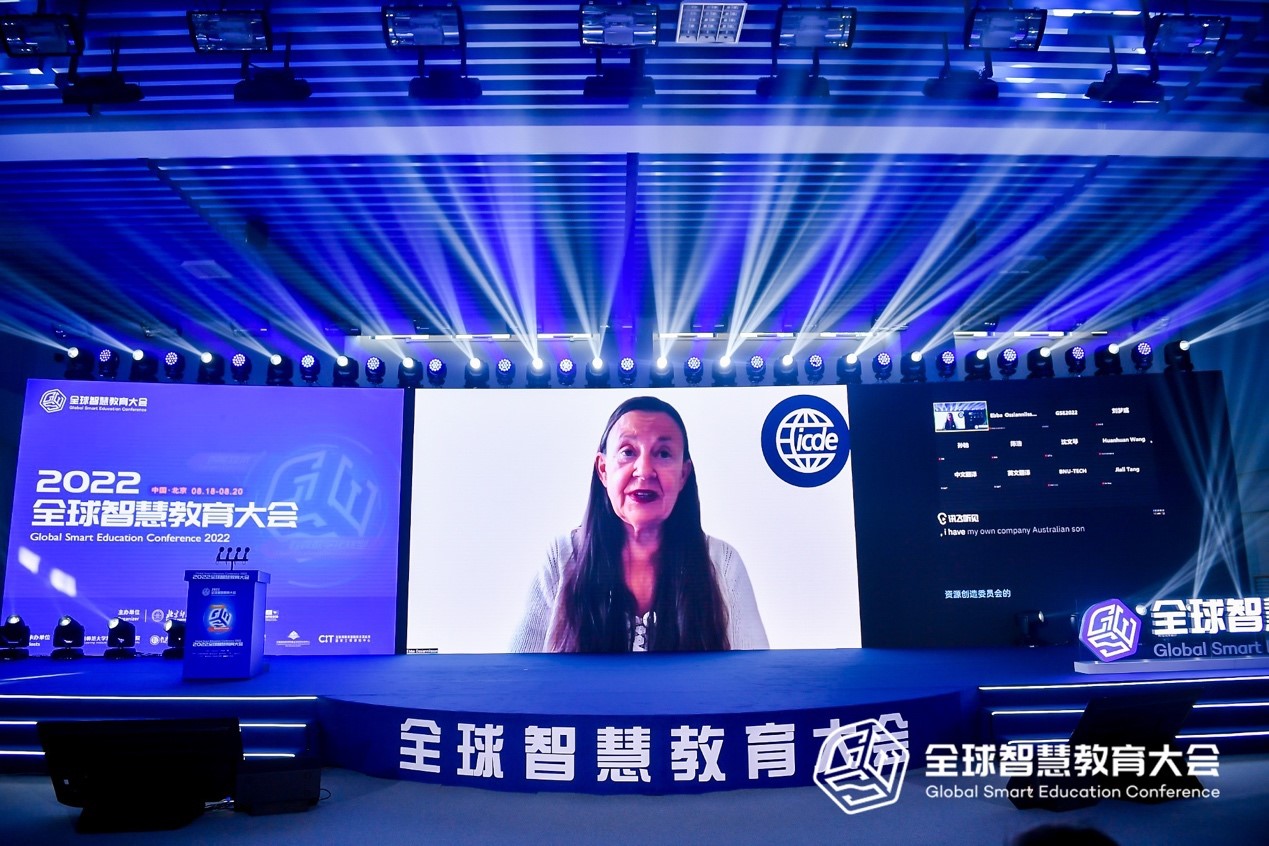
Professor Ebba Ossiannilsson, chair of the ICDE OER Advocacy Committee
Professor Ebba Ossiannilsson, chair of the ICDE OER Advocacy Committee, focused on Mainstreaming OER. She pointed out that open education is the only way to achieve the equality and lifelong learning advocated by UNESCO. Open access to educational resources is essential for the sustainable development of education and the achievement of human rights equality. OER is public resources, including various teaching resources, media and platforms, which are publicly authorized and accessible to all and can be re-edited, copied or distributed to third parties for use.
National Smart Education Strategy for teaching and learning

Dr. Sanjaya Mishra, director of Education of Commonwealth of Learning (COL)
Dr. Sanjaya Mishra, director of Education of Commonwealth of Learning (COL), gave a presentation on “Smart Education Strategies for Teaching and Learning”. He shared a report on the strategy of smart education in teaching and learning, related case studies and a framework for smart education. He believed smart education could be defined from three aspects: the first is to enable people to immerse themselves in learning and transfer knowledge; the second is the innovative application of technology, interactive participation and the availability of learning resources; and the third is the ethical aspect, which needs to focus on cybersecurity and equity issues.

Dr. Joseph South, chief learning officer of the International Society for Technology in Education (ISTE)
Dr. Joseph South, chief learning officer of the International Society for Technology in Education (ISTE), believed that the core idea of the “Rethinking and Redesigning National Smart Education Strategy” is to transform teaching and learning through technology. He explained it from 3 aspects: (1) transformative teaching and learning enabled through technology; (2) a digital learning environment conducive to smart education; and (3) forward-thinking governance and policy initiatives. Under the impact of the COVID-19 pandemic, it is difficult for us to return to the original form of teaching, so we need to examine existing teaching methods, create new teaching methods, think about the right teacher-student relationship, and build a strong learning community to create a good learning environment.

